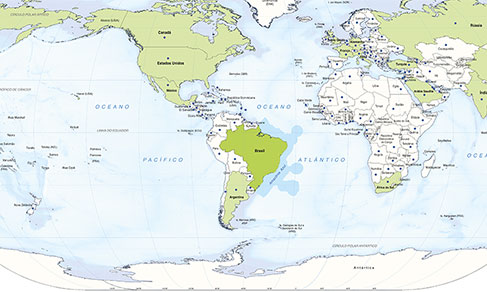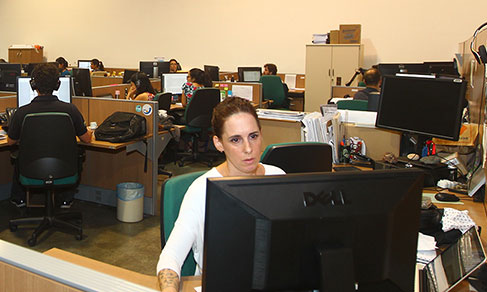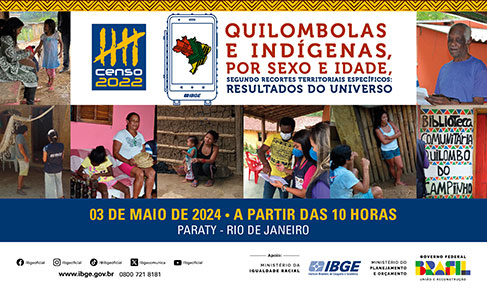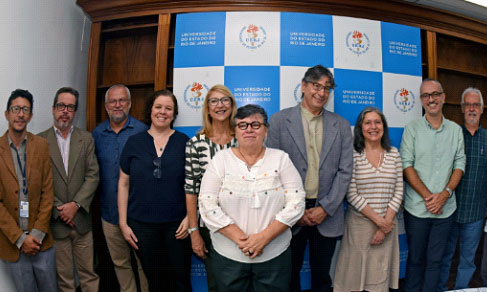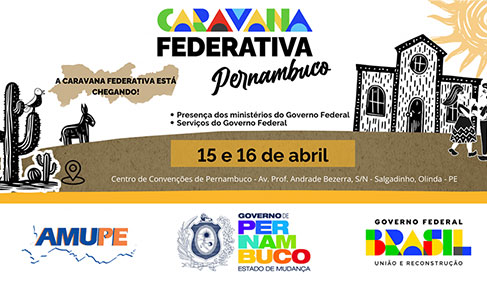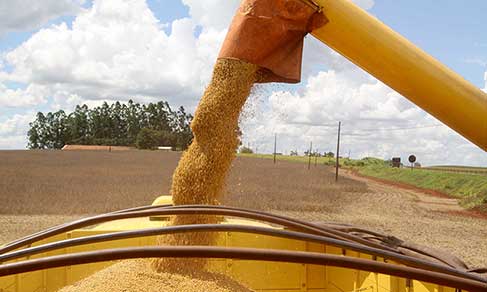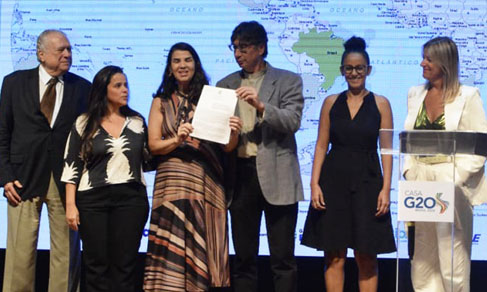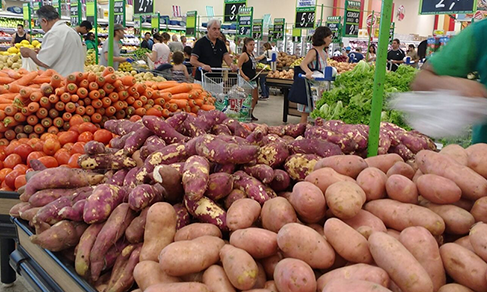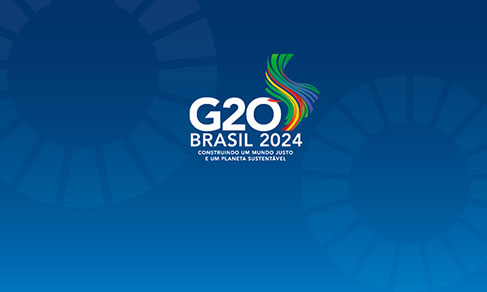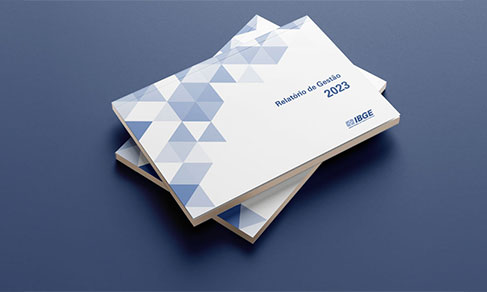World Cup
Who will win? Soccer probability calculations promote statistics
June 15, 2018 09h00 AM | Last Updated: June 19, 2018 03h42 PM
In addition to surveys and indicators such as those published by the IBGE, statistics are good as well for probabilsitic calculations, such as those used in the World Cup to estimate the teams' winning chances. That is the focus of the work developed by Marcelo Leme de Arruda on the Chance de Gol website, created by him in 1999, with the odds for each result in national and international games and competitions.
Marcelo Leme participated in the seminar "Statistics applied to sports", held on June 8, at Ence (National School of Statistical Sciences), as part of the celebrations of the Statistician Day, May 29, the same date of the IBGE anniversary. In his lecture, he addressed probabilities applied exactly to soccer games and championships.
"In the case of the World Cup, we take into account the results of all the world's teams in the last four years, considering official matches and the FIFA-Calendar. In friendly matches outside the FIFA-Calendar, we have no guarantee that the teams will use their main teams, so we leave them out," explained Marcelo. "We calculate each team's probability of victories and tie-ups, I do this for each game and a program does this simulation 10 thousand times for the whole World Cup and then we see the results: how many times each team finished in each position," he added.
According to Chance de Gol projections, Brazil is the most likely team to win the World Cup title, with a probability of 34.6%. The biggest threat would be Spain, with 19.7% of chance of winning the cup and 34.6% to reach the finals, although last-minute coach replacemnet is not considered, for example.
"Besides friendlies outside FIFA-Calendar, every unmathematizable aspect is left out: the tradition, the 7x1 nightmare, the responsibility of wearing that jersey, absences, if the team replaced the coach two days before. But the field command is taken into account, so Russia is considered the "commander", for example, "said Marcelo.
The two biggest underdogs in the competition, in turn, would be Panamá and South Korea, with only a 1.1% and 1.3% probability of progressing from the group stage, respectively.
The first stage should not be a problem for the Brazilian team. Chance de Gol sees a 95.8% chance of Brazil passing Group E and advancing to the Round of 16, with Switzerland (46.4%) and Serbia (43.3%) as most probable candidates for the other vacancy, while Costa Rica would be the upset (14.5%). In the group, scoring seven points ensures the classification, while five would lead to a 97% chance and four, to 60%.
Statistics and sports
PhD in statistics from the University of São Paulo (USP), Marcelo says his interest in calculation of soccer result probabilities came naturally and had a strong family influence.
"I've always liked math, I'm from a family that's always been very fond of discussing soccer, as, for example, who has a better chance of being a champion. So, joining the two together, I found out about probability articles, one thing led to another. I took mathematics at university because I liked the subject and wanted to learn things that would help me in that kind of discussion as well. When I got a master's degree at USP, I showed my counselor a model and he thought it could become a thesis. At the time, we made a website with the calculation of relegation chances in the 1999 Brazilian Championship and Terra was interested," the statistician recalled.
Knowing how difficult it is to explain mathematical concepts to the general public, Marcelo says he has had a hard time being held responsible for unexpected results. Also because of this, he sees this type of work as an important way of disseminating statistical knowledge in society.
"There are two universes that this relationship between sports and statistics can generate. One may be useful but still affected by prejudice, which is the scout, as in volleyball. What you should work out according to the numbers and so on. The other are the probabilities, which are also important. You can get a notion of what lies ahead in the championship", he added.
"People often do not understand the difference between probability and certainty. They think that if Brazil has more chances, it will be the champion. This type of limited understanding is what makes the subject so poorly widespread in Brazil, a victim of prejudice. It's complicated, it's the famous example of the 99% of Fluminense in 2009," he concluded, recalling the famous case in which the team from Rio escaped the relegation in the Brazilian Championship against all odds.




